
A novel prognostic model based on N 6-methyladenosine-associated long non-coding RNAs demonstrated accuracy in determining high- and low-risk disease, suggesting the associated risk value may have potential as a novel biomarker.

Rose is an editorial director at The American Journal of Managed Care® (AJMC®).
She has a BA in journalism & media studies and Spanish from Rutgers University. You can connect with Rose on LinkedIn.

A novel prognostic model based on N 6-methyladenosine-associated long non-coding RNAs demonstrated accuracy in determining high- and low-risk disease, suggesting the associated risk value may have potential as a novel biomarker.
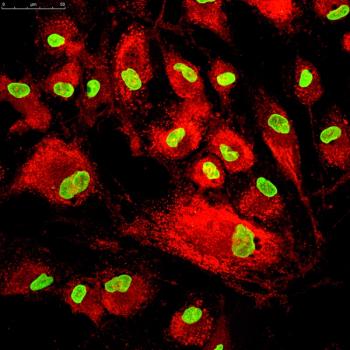
Preventing graft-versus-host disease (GVHD) after allogeneic stem cell transplant is a key aspect of patient management, but current cyclosporine concentration guidelines may not be sufficient, according to a recent study.
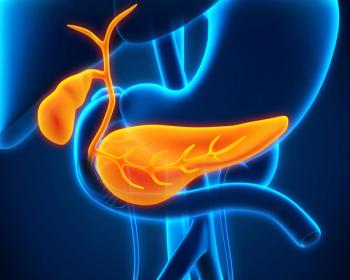
A retrospective study found low treatment adherence and no significant benefits to adjuvant chemotherapy or chemoradiotherapy following cholangiocarcinoma resection.
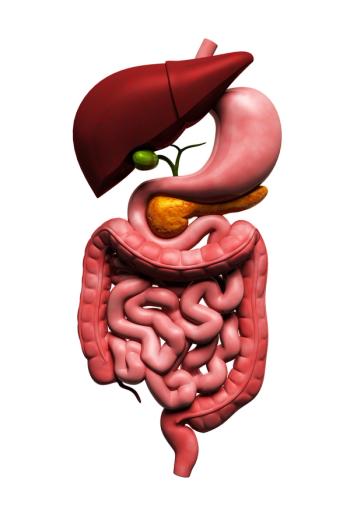
A recent study aimed to provide insight and guidance for managing graft-versus-host disease in patients after liver transplantation.

Whole-exome sequencing of a family with early-onset cancers found a novel variant in programmed cell death 1 ligand 2 that could potentially indicate germline predisposition to lymphoma.

A recent review points to a host of potentially disease-modifying agents currently in clinical trials.

Recurrence is common in patients with distal cholangiocarcinoma, even after curative surgical resection. In a recent study, postoperative adjuvant therapy correlated with improved survival, but only in certain patients.

Patients being treated for acute myeloid leukemia (AML) who are diagnosed with COVID-19 may be best served by chemotherapy delay until after COVID-19 has run its course.

A small study aimed to increase the likelihood of detecting minor neurological symptoms of spinal muscular atrophy via a combination of tests specifically suited to newborns.

A survey of blood and bone marrow transplant patients found that many who fit current criteria for ocular graft-versus-host disease have not been diagnosed.

A recent study identified TIGIT as a marker of chimeric antigen receptor (CAR) T-cell exhaustion and found it to improve CAR T-cell therapy efficacy in preclinical models.

Differentiation between multiple myeloma (MM) and bone metastases from other cancers can be difficult, but radiomics-based models have potential to improve diagnostic accuracy.

Treatment resistance is a significant challenge in immunotherapy, but it is not fully understood. A recent review summarized 5 tumor microenvironment traits that may inhibit therapy effectiveness and potential strategies to improve therapy responses.

While 5-year survival in adolescent and young adult leukemia has improved in recent decades, this patient population still faces increased long-term mortality compared with the general public.

Fine-tuning clinical phenotypes and identifying effective treatments remain challenging in chronic lung allograft dysfunction (CLAD) after lung transplantation and chronic graft-versus-host disease (GVHD) after allogeneic hematopoietic stem-cell transplantation.

Locally advanced or metastatic basal cell carcinoma can be challenging to treat, but programmed death receptor 1 inhibition may hold potential as a tolerable, effective approach in patients of all ages.

Significant progress has led to improved survival in patients with HIV/AIDS, but lymphoma remains a leading cause of morbidity and mortality in this patient population.
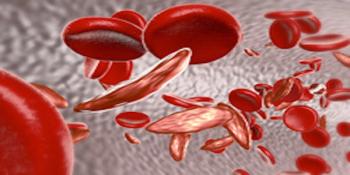
A retrospective study assessed hospital readmission rates in patients with sickle cell disease and acute chest syndrome who took angiotensin-converting enzyme inhibitors or angiotensin II receptor blockers vs those who did not.
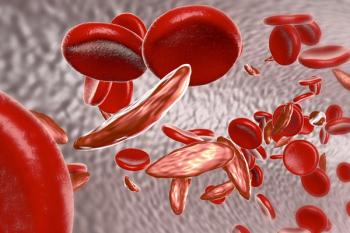
Improved management of sickle cell disease has vastly improved life expectancy and reduced morbidity for affected patients, but the disease itself and its treatments carry fertility risks that many young patients and their caregivers are unaware of.

Very elderly patients with acute myeloid leukemia have historically been limited to less intensive, less effective treatment regimens. A recent series of cases suggests age alone should not be a limiting factor for effective treatment.

A study of hospitals and long-term care facilities in Louisville, Kentucky, found low rates of Clostridioides difficile testing in patients with new-onset diarrhea who are frequently infected.

Patients with acute myeloid leukemia (AML) who have undergone intensive chemotherapy are at a very high risk for invasive fungal disease, and a changing treatment landscape warrants further research on drug-drug interactions and outcomes.

Polycythemia vera and essential thrombocythemia are both slow-progressing conditions and treated mainly with symptom management, but novel agents and gene targets have changed the landscape in recent years.

Preventing health-care–associated infections in acute-care hospitals is crucial for patient well-being and health care cost burden, and comprehensive guidelines based on current research are an important aspect of prevention.

Drugs currently marketed for pulmonary arterial hypertension have been able to extend the lives of patients but have shown limitations in their ability to prevent or reverse the disease. A novel combination approach may hold promise in future treatments.

Peer support can be a helpful facet of chronic kidney disease (CKD) self-management, but inconsistent provider awareness and referral practices are barriers to uptake at Canadian clinics.

A study of the Austrian general population found that most chronic cough cases could be assigned a phenotype through a simple survey-based assessment that could help target treatment to individual cases.

While risk factors for pterygia are well-known, the underlying disease mechanisms have not been fully clarified in past studies. A new analysis using RNA sequencing pinpointed ptergyia-specific biomarkers and potential therapeutic targets.

A recent study found chronic kidney disease (CKD) to be an independent risk factor for incident heart failure with reduced ejection fraction (HFrEF) following percutaneous coronary intervention (PCI).

Acute myeloid leukemia is a complicated heterogenous hematological cancer with a poor prognosis, but novel targets may lead to improved treatment and outcomes going forward.

259 Prospect Plains Rd, Bldg H
Cranbury, NJ 08512
© 2025 MJH Life Sciences®
All rights reserved.
